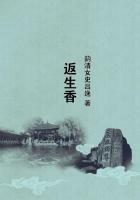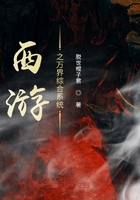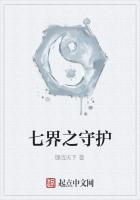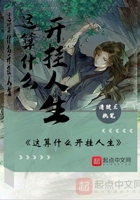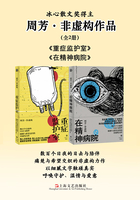PEOPLE ONCE MORE DARED TO BE HAPPY
JUST BECAUSE THEY WERE ALIVE. THE YTRIED TO SAVE THE REMAINS OF THE OLDER AND MORE AGREEABLE CIVILISATION OF ROME AND GREECE AND THEY WERE SO PROUD OF THEIR ACHIEVEMENTS THAT THEY SPOKE OF A RENAISSANCE OR RE-BIRTH OF CIVILISATION THE Renaissance was not a political or religious movement. It was a state of mind. The men of the Renaissance continued to be the obedient sons of the mother church. They were subjects of kings and emperors and dukes and murmured not.
But their outlook upon life was changed. They began to wear different clothes--to speak a different language--to live different lives in different houses.
They no longer concentrated all their thoughts and their efforts upon the blessed existence that awaited them in Heaven.
They tried to establish their Paradise upon this planet, and, truth to tell, they succeeded in a remarkable degree.
I have quite often warned you against the danger that lies in historical dates. People take them too literally. They think of the Middle Ages as a period of darkness and ignor- ance. "Click," says the clock, and the Renaissance begins and cities and palaces are flooded with the bright sunlight of an eager intellectual curiosity.
As a matter of fact, it is quite impossible to draw such sharp lines. The thirteenth century belonged most decidedly to the Middle Ages. All historians agree upon that. But was it a time of darkness and stagnation merely? By no means.
People were tremendously alive. Great states were being founded. Large centres of commerce were being developed.
High above the turretted towers of the castle and the peaked roof of the town-hall, rose the slender spire of the newly built Gothic cathedral. Everywhere the world was in motion. The high and mighty gentlemen of the city-hall, who had just become conscious of their own strength (by way of their recently acquired riches) were struggling for more power with their feudal masters. The members of the guilds who had just become aware of the important fact that "numbers count" were fighting the high and mighty gentlemen of the city-hall. The king and his shrewd advisers went fishing in these troubled waters and caught many a shining bass of profit which they proceeded to cook and eat before the noses of the surprised and disappointed councillors and guild brethren.
To enliven the scenery during the long hours of evening when the badly lighted streets did not invite further political and economic dispute, the Troubadours and Minnesingers told their stories and sang their songs of romance and adventure and heroism and loyalty to all fair women. Meanwhile youth, impatient of the slowness of progress, flocked to the universities, and thereby hangs a story.
The Middle Ages were "internationally minded." That sounds difficult, but wait until I explain it to you. We modern people are "nationally minded." We are Americans or Englishmen or Frenchmen or Italians and speak English or French or Italian and go to English and French and Italian universities, unless we want to specialise in some particular branch of learning which is only taught elsewhere, and then we learn another language and go to Munich or Madrid or Moscow.
But the people of the thirteenth or fourteenth century rarely talked of themselves as Englishmen or Frenchmen or Italians.
They said, "I am a citizen of Sheffield or Bordeaux or Genoa."
Because they all belonged to one and the same church they felt a certain bond of brotherhood. And as all educated men could speak Latin, they possessed an international language which removed the stupid language barriers which have grown up in modern Europe and which place the small nations at such an enormous disadvantage. Just as an example, take the case of Erasmus, the great preacher of tolerance and laughter, who wrote his books in the sixteenth century. He was the native of a small Dutch village. He wrote in Latin and all the world was his audience. If he were alive to-day, he would write in Dutch. Then only five or six million people would be able to read him. To be understood by the rest of Europe and America, his publishers would be obliged to translate his books into twenty different languages. That would cost a lot of money and most likely the publishers would never take the trouble or the risk.
Six hundred years ago that could not happen. The greater part of the people were still very ignorant and could not read or write at all. But those who had mastered the difficult art of handling the goose-quill belonged to an international republic of letters which spread across the entire continent and which knew of no boundaries and respected no limitations of language or nationality. The universities were the strongholds of this republic. Unlike modern fortifications, they did not follow the frontier. They were to be found wherever a teacher and a few pupils happened to find themselves together. There again the Middle Ages and the Renaissance differed from our own time. Nowadays, when a new university is built, the process (almost invariably) is as follows: Some rich man wants to do something for the community in which he lives or a particular religious sect wants to build a school to keep its faithful children under decent supervision, or a state needs doc- tors and lawyers and teachers. The university begins as a large sum of money which is deposited in a bank. This money is then used to construct buildings and laboratories and dormitories.
Finally professional teachers are hired, entrance examinations are held and the university is on the way.
But in the Middle Ages things were done differently. A wise man said to himself, "I have discovered a great truth. I must impart my knowledge to others." And he began to preach his wisdom wherever and whenever he could get a few people to listen to him, like a modern soap-box orator. If he was an interesting speaker, the crowd came and stayed. If he was dull, they shrugged their shoulders and continued their way.

